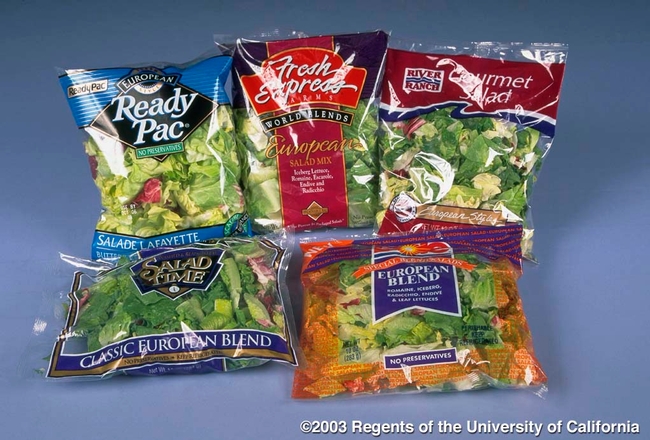Re-washing bagged greens may do more harm than good
Re-washing bagged greens may be making salads dirtier, according to a bevy of food safety experts, reported Deborah Schoch in the Los Angeles Times.
Even the cleanest kitchens can teem with harmful pathogens - on cutting boards and in salad spinners, on knives that just sliced raw chicken, on damp, well-used cloth towels.
"In brief, consumers don't wash up very well and may contaminate produce due to dirty hands and dirty sink," emailed Christine M. Bruhn, director of the Center for Consumer Research at UC Davis. That's especially a problem with salad greens, since they never get cooked.
Schoch spoke to food experts from Kansas State University and the University of Maryland who also recommended pre-washed greens not be re-washed.
California apprenticeship building future producers
Amy Trinidad, Sheep Industry News
The American Sheep Industry Association is teaming up with the state sheep associations to expand the Let’s Grow initiative to include mentor programs for beginning sheep producers.
“There is a real movement as far as people wanting to get back to the land. In some ways, it’s like the 1960s and 70s, only with a whole bunch of bigger challenges,” says Roger Ingram, University of California Cooperative Extension farm advisor.
Shepherds need to know how to run animals in a variety of environments, be able to identify common and uncommon pasture and range plants, know range nutrition, identify potential poisonous plants, be able to quickly asses the health of the flock and be able to take the appropriate steps in field conditions to fix problems, Ingram said.
Mild winter shifts the start of the growing season
Heather Hacking, Chico Enterprise Record
The lack of rain has meant some Butte County almond growers have already irrigated twice, and some are starting a third run with the water. They would rather not water at all, and often don't need to this time of year, said Joe Connell, UC Cooperative Extension farm advisor.
It can cost about $40 to apply 12 inches of water to one acre, he said. Growers will think carefully before pumping if it looks like another storm is on the way. The most recent rain provided water to the first foot of soil, depending on the soil conditions. But almond growers will want the soil irrigated 3 to 4 feet down by bloom time.
Almond trees in the area will likely begin to bloom around Valentine's Day this year, about a week earlier than normal.
Yuba-Sutter beekeepers abuzz on research
Jonathan Edwards, Orland Press Register
Losing bees to colony collapse disorder is not good for Yuba-Sutter. Beekeeping brought in about $3.9 million to area beekeepers in 2010, the last year for which data is available. On average, beekeepers have lost nearly one-third of their colonies each year since 2006.
That number likely skyrocketed last year as dwindling colonies drove higher prices. A shrinking supply of vibrant hives nearly doubled the price of a colony, from $33 to $58 between 2009 and 2010, according to the Sutter County Crop Report. The price nearly tripled again and is holding at about $150 a colony, said Eric Mussen, an apiculturist with UC Cooperative Extension at UC Davis.
"It just shot up," he added.

